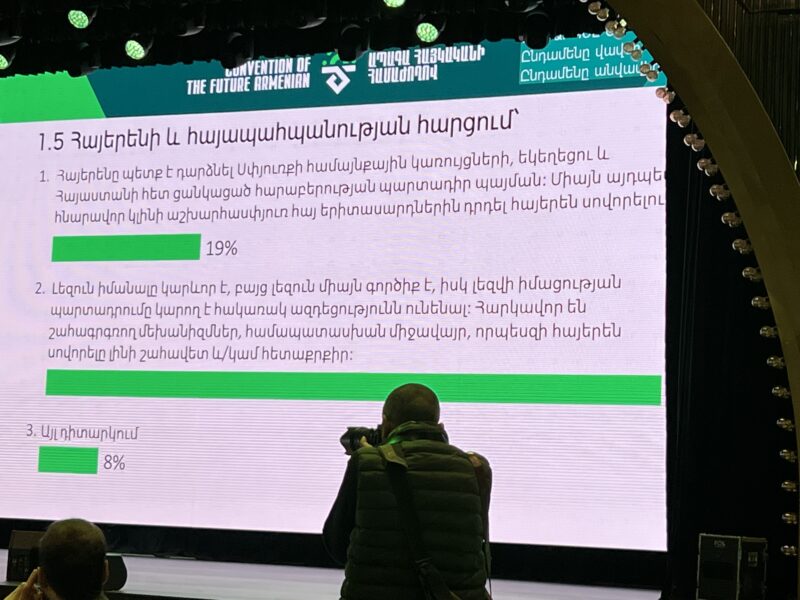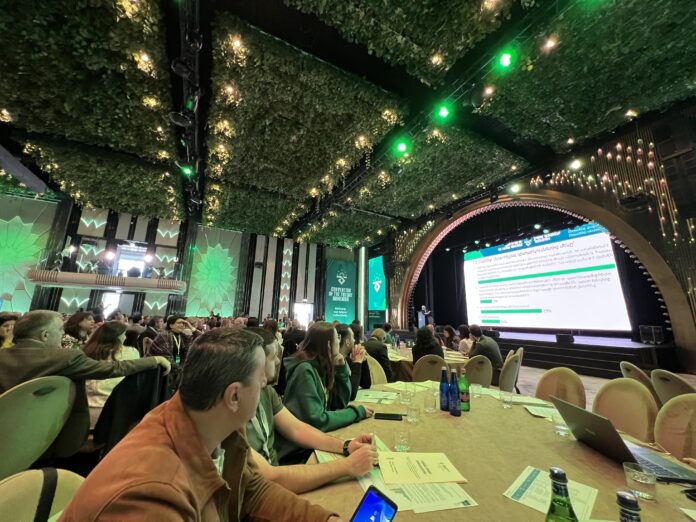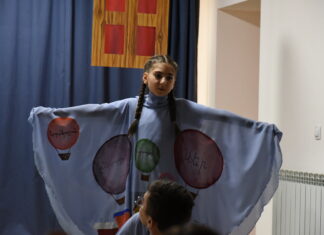WATERTOWN — The Future Armenian Convention or citizens assembly, which took place in March in Yerevan (see accompanying article), voted over three days on questions of policy and proposals for action in three broad fields. The main results are summarized below. In theory, the 200 individuals selected to participate from various parts of the Armenian world were to form a microcosm of the total Armenian population so that their votes would be a type of barometer on how Armenians view the issues examined. Whether or not they are fully representative or the Future Armenian initiative will succeed in facilitating the actions proposed, the voting results are interesting in and of themselves. The full data may be found at futurearmenian.com, where further analysis of the data may be posted later.
Historic Responsibility
On efforts aimed at recognition of the Armenian Genocide conducted by the Armenian state, communities, Armenian organizations and individuals to date, 30.61 percent voted that they have been effective, but today, pan-Armenian efforts should be directed more toward solving security problems, while another 30.61 percent voted that on the contrary, they have not been very effective, and so changes in the approach to achieve recognition may be needed.
In response to the question, for whom is Artsakh an issue, the 120,000 residents of Artsakh, these residents plus the 3 million Armenians in Armenia, or all ten million Armenians around the world, an overwhelming 92.71 percent voted for the latter, indicating that it remains a pan-Armenian issue. Furthermore, 54.84 percent voted that “Armenians all over the world should jointly assume responsibility for Artsakh and not leave the state and the citizens of Armenia and, even more so, the people of Artsakh, alone to solve this issue. The Armenian nation should not be afraid of victories,” while only 6.45 percent voted that adventurism is dangerous concerning Artsakh and its security and the position of Artsakh was weakened after the 2020 war. However, 29.03 percent voted that the two aforementioned claims do not contradict one another.

As far as preservation of heritage was concerned, 61.74 percent voted that “It is our duty to preserve our historical and cultural heritage and pass it on to the next generations. Both the state and Armenians around the world should dedicate as many resources as necessary to this purpose, and do this effectively, while another 28.86 percent voted for a more entrepreneurial approach: “We should be able to preserve our historical and cultural heritage similar to a business profit model. This means viewing our heritage not as a burden or responsibility, but rather as a valuable asset that can generate revenue and be further developed while also being preserved for future generations.”
Regarding the Armenian language and Armenian preservation, 72.90 percent voted that “While knowledge of the Armenian language is undoubtedly important, it should be acknowledged that language is merely a tool, and the act of forcing language knowledge can often have the opposite effect. Instead, it is crucial to create an environment and implement effective mechanisms that make learning Armenian both beneficial and interesting for individuals. Only then can we expect to encourage Armenian youth from around the world to learn and embrace their language and culture.” On the other hand, 19.36 percent took a more rigid position, voting that: “To facilitate communication among Diaspora community institutions, the Church, and Armenia, it is essential to make the Armenian language mandatory. This will encourage Armenian youth from all over the world to learn and embrace their language and culture.”








